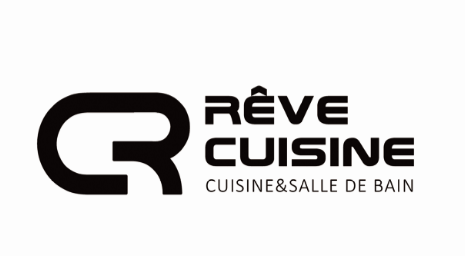
Keeping your kitchen countertops spotless is essential for hygiene and aesthetics. This guide outlines practical steps and expert tips on how to clean kitchen countertops. Whether you use a granite or quartz countertop, these tips will help extend their life and preserve the beauty of your kitchen surfaces.

General Kitchen Countertops Cleaning Tools You Will Need
Here are the key materials you need for an effective countertop restoration:
- Cleaning cloths
- Dish soap
- Disinfectant
- Kosher salt and half a lemon
- Sealer
- Wood conditioner

How to Clean Marble and Granite Countertops
Marble and granite usually require non-abrasive tools and products to avoid damaging the surface. These tools and products include:
- Water
- Dish soap
- Microfiber cloths
- Baking Soda
- Hydrogen Peroxide
- Plastic Wrap
- Tape
Now, here’s how to clean granite countertops:
- Mix a small amount of dish soap with warm water.
- Dampen a microfiber cloth in the soapy water and gently wipe the countertop surface to remove dirt and spills.
- Rinse the cloth with clean water and wipe the surface again to remove any soap residue.

How to Clean Quartz or Engineered Stone Countertops
Quartz or engineered stone countertops also require gentle tools and countertop cleaner products. Here are the top recommendations for these surfaces:
- Dish soap
- Water
- Nonabrasive glass or surface cleaner
- Microfiber cloths
- Nonabrasive sponge
Here’s how to clean quartz countertops:
- Mix a small amount of dish soap with warm water.
- Dampen a microfiber cloth in the soapy water and gently wipe the countertop surface to remove everyday dirt and spills.
- Rinse the cloth with clean water and wipe the surface again to remove any soap residue.
- If you’re using nonabrasive glass or surface cleaner, spray it on the surface and wipe it with a microfiber cloth to remove any residue or streaks.
How to Remove Stains From Granite and Marble Countertops?
Here’s how to clean stains on granite countertops:
- Create a countertop stain remover paste by mixing baking soda with warm water
- Apply the paste to the stained area on the countertop.
- Leave the paste to sit for 10 minutes to allow the stain to be lifted.
- Wipe away the paste with a damp microfiber cloth, and rinse with water.
Baking soda paste is best for oil-based stains, but if you’re dealing with water-based stains, use hydrogen peroxide.
Removing Stains on Quartz and Engineered Stone Countertops
Quartz and engineered stone are known for their exceptional stain resistance. If you notice any stubborn stains after rinsing, simply wipe the countertop with glass cleaner and a soft cloth. Use grout cleaner to tackle persistent stains on grout lines and countertop seams.

How to Disinfect Countertops
Before disinfecting countertops, consider the type of material it’s made of. Each type of countertop requires special methods to prevent damage. Follow these steps to disinfect different types of countertops:
For Granite:
- Use diluted household bleach for disinfection.
- Mix 1 part household bleach with 9 parts water to create a disinfecting solution.
- Apply the solution to the countertops and let it sit for a few minutes.
- Rinse the countertops thoroughly with water to remove the bleach solution.
For Marble:
- Use a disinfecting spray specific to marble.
- Spray the approved disinfectant onto the countertops.
- Allow the disinfectant to sit for the recommended contact time specified on the product label.
- Wipe the countertops with a clean cloth to remove any excess disinfectant.
For Engineered Stone and Quartz:
- Use rubbing alcohol for disinfection.
- Apply a small amount of rubbing alcohol to a microfiber cloth.
- Wipe down the engineered stone or quartz countertops with the alcohol-soaked cloth, ensuring complete coverage.
- Allow the alcohol to air dry on the surface for effective disinfection.
How to Seal Countertops
Sealing countertops can help them resist stains and damage. This practice involves creating a protective barrier that prevents liquids from penetrating the porous surface of the countertop. This way, they last longer and keep your kitchen looking its best.
Before sealing your granite countertop, you have to first test it to make sure it’s necessary. Place a few drops of water on the countertop. If the water beads up and does not absorb into the stone, the seal is still effective.
If the water absorbs into the stone and creates a dark spot, it’s time to reseal the countertop. Apply a sealer suitable for granite according to the manufacturer’s instructions. Engineered stone and quartz countertops are non-porous and typically do not require resealing.
About ReveCuisine
Rêvecuisine offers a broad range of natural and engineered stone slabs to help you customize your countertops. With free on-site measurement added, we ensure that your ideal countertop fits flawlessly within your kitchen. We also work with the best contractors to deliver a smooth installation process. Contact us today to learn more about our services.



